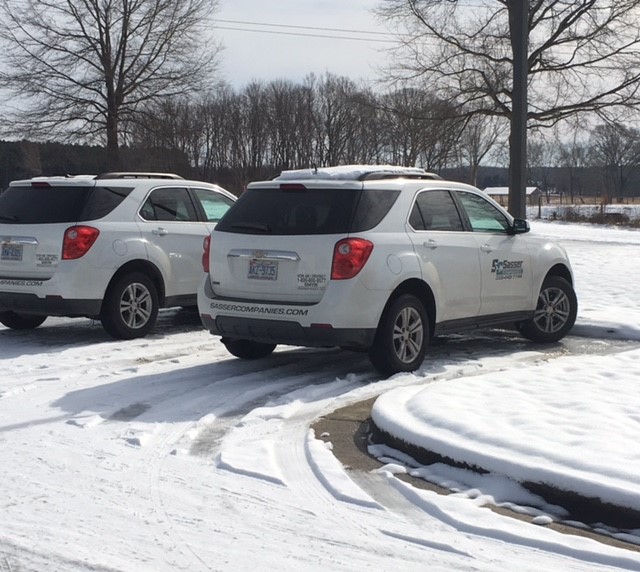Tips to prevent Frozen Pipes and How to Thaw Pipes
Winter has stormed into the Piedmont, bringing snow, ice and plummeting temperatures that can wreak havoc on plumbing.
A ruptured water line can cause extensive, costly damage and disrupt your life or business. Even worse, flood water can pose numerous safety and health risks, ranging from electrical shock to illness from waterborne pathogens or even toxic mold.
With your family or business on the line, you want to do everything you can to prevent water from freezing inside your plumbing. But if you do think a pipe is frozen, don’t panic; frozen pipes don’t always rupture, and there are steps you can take to prevent pipes from bursting and safely thaw them.
A frozen pipe will not necessarily burst if the faucet valve is open to release pressure moving down the pipe.
Start with prevention
We’ll go into tips for thawing pipes below, but let’s start with steps you can take right now to reduce the risk of frozen pipes. Make sure you winterize your property outdoors, draining pools and irrigation systems and hoses, insulating and covering outdoor faucets and securing doors and windows in garages and outbuildings with water supplies. Also, be sure to follow these tips from the American Red Cross:
- Check around the home for other areas where water supply lines are located in unheated areas. Look in the basement, crawl space, attic, garage, and under kitchen and bathroom cabinets. Both hot and cold water pipes in these areas should be insulated.
- Open kitchen and bathroom cabinet doors to allow warmer air to circulate around the plumbing. Be sure to move any harmful cleaners and household chemicals up out of the reach of children.
- When the weather is very cold outside, let the cold water drip from the faucet served by exposed pipes. Running water through the pipe, even at a trickle, helps prevent pipes from freezing.
- Keep the thermostat set to the same temperature both during the day and at night. By temporarily suspending the use of lower nighttime temperatures, you may incur a higher heating bill, but you can prevent a much costlier repair job if pipes freeze and burst.
- If you will be going away during cold weather, leave the heat on in your home, set to a temperature no lower than 55° F.
If pipes freeze, don’t be alarmed, do this:
If you wake up one morning and the water won’t come on in your kitchen, don’t panic. While horrifying visions of water filling crawl spaces and mold spores sprouting may be unavoidable, a frozen pipe will not necessarily burst if the faucet valve is open to release pressure moving down the pipe. Take a deep breath, then follow these American Red Cross tips to safely thaw your pipe:
- If you turn on a faucet and only a trickle comes out, suspect a frozen pipe. Likely places for frozen pipes include against exterior walls or where your water service enters your home through the foundation.
- Keep the faucet open. As you treat the frozen pipe and the frozen area begins to melt, water will begin to flow through the frozen area. Running water through the pipe will help melt ice in the pipe.
- Apply heat to the section of pipe using an electric heating pad wrapped around the pipe, an electric hair dryer, a portable space heater (kept away from flammable materials), or by wrapping pipes with towels soaked in hot water. Do not use a blowtorch, kerosene or propane heater, charcoal stove, or an open flame.
- Apply heat until full water pressure is restored. If you are unable to locate the frozen area, if the frozen area is not accessible, or if you cannot thaw the pipe, call a licensed plumber.
- Check all other faucets in your home to find out if you have additional frozen pipes. If one pipe freezes, others may freeze, too.
Source: American Red Cross
These tips should help minimize the risk plumbing ruptures from frozen pipes. But sometimes nature simply shoves aside our best efforts and the worst happens. If you find yourself facing a water damage catastrophe from frozen, ruptured pipes, contact Sasser Companies at (336) 449-1144, our crews are available 24 hours, 7 days a week. You’ll talk to a real staff member, and professional help will be on the way.
![SASSER CO 1L[1] Sasser Companies, Inc](https://sassercompanies.com/wp-content/uploads/2015/08/SASSER-CO-1L1.jpg)


